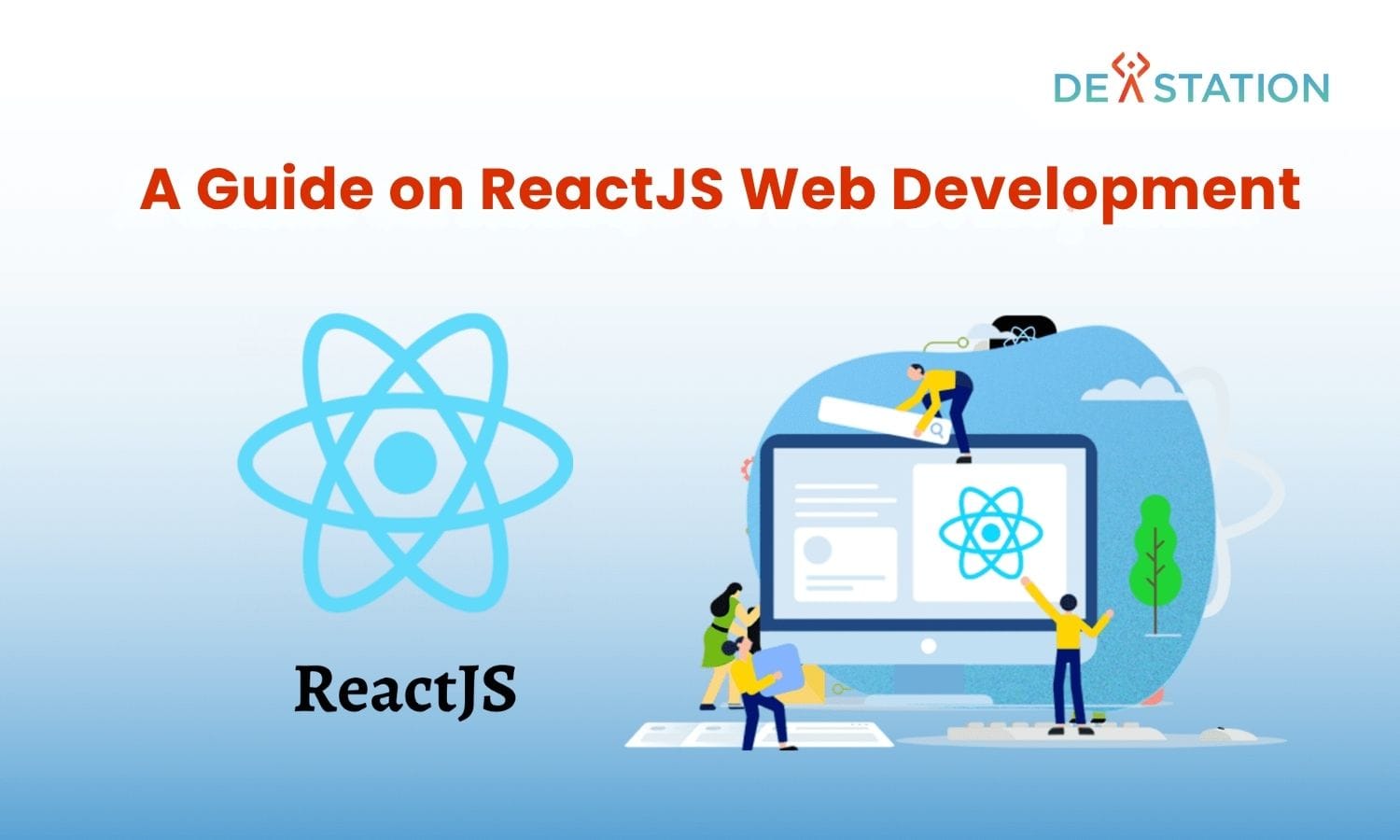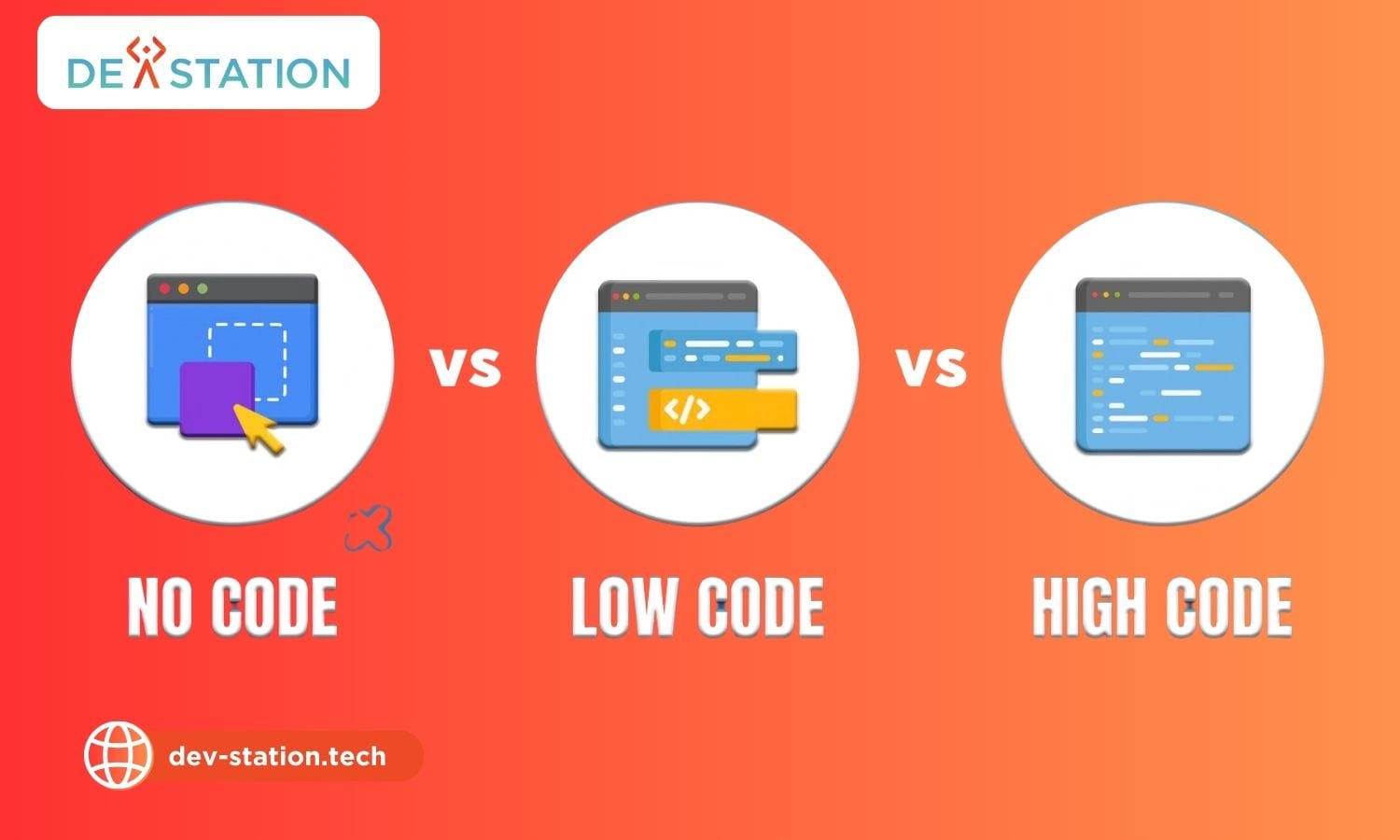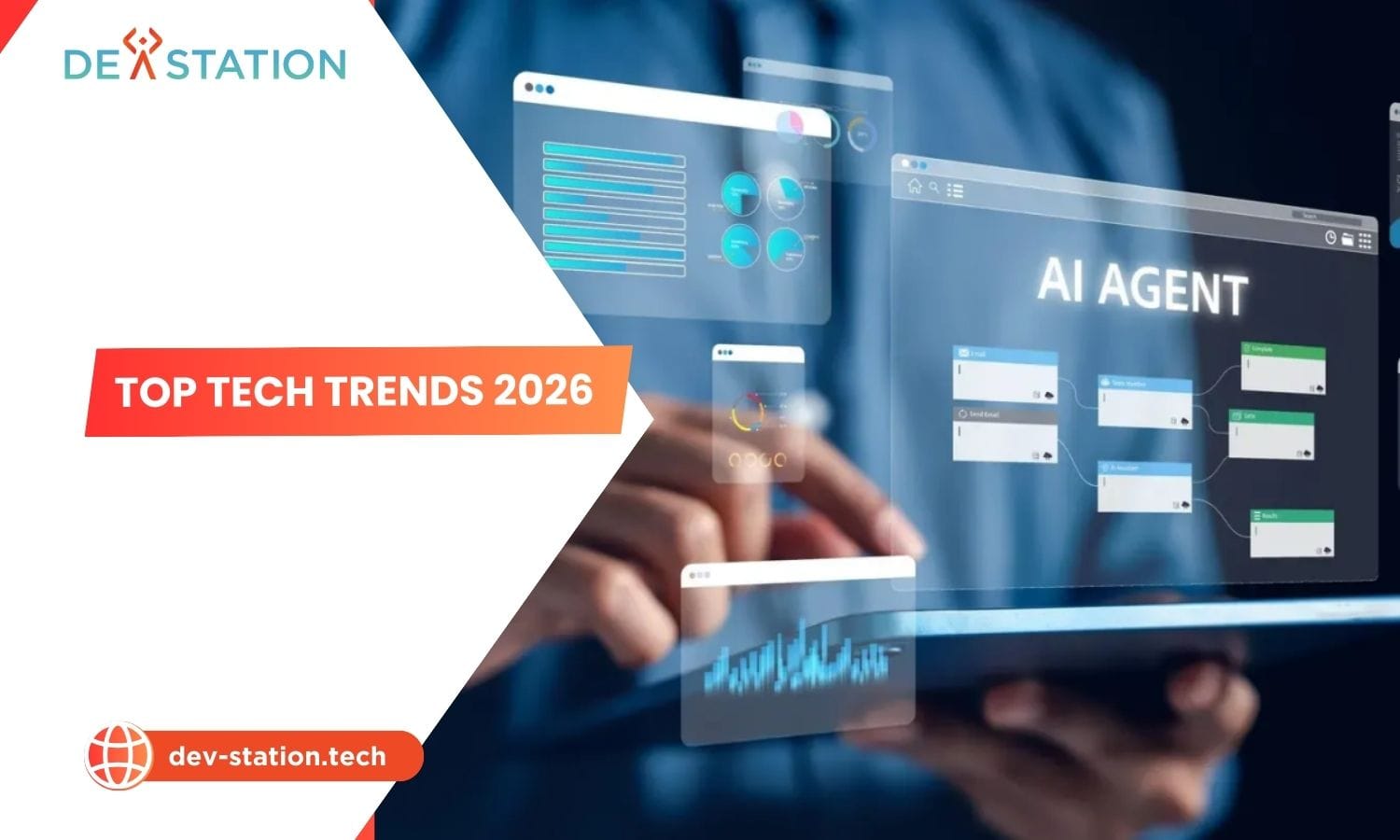In today’s fast-paced digital landscape, businesses need scalable solutions that adapt to evolving demands. Dev Station Technology specializes in crafting high-performance applications using modern frameworks designed for speed and flexibility. Their approach combines technical precision with strategic insights to deliver measurable results.
The team leverages component-based architecture to build responsive interfaces that engage users effectively. This methodology reduces load times while ensuring seamless functionality across devices. For organizations prioritizing growth, this translates to improved customer retention and operational efficiency.
With a focus on innovation, Dev Station Technology empowers enterprises to stay ahead in competitive markets. Their engineers employ rigorous testing protocols to maintain code quality and system reliability. Whether optimizing existing platforms or launching new products, they align technical execution with business objectives.
Contents
ToggleKey Takeaways
- Component-driven design enhances application performance and user experience
- Scalable architectures support long-term business growth and adaptability
- Cross-platform compatibility ensures consistent functionality on all devices
- Rigorous quality assurance processes minimize technical debt
- Strategic alignment between technical solutions and organizational goals
Introduction: Elevating Your Digital Presence with ReactJS
Creating a standout digital presence requires tools that balance power and adaptability. Organizations need interfaces that engage audiences while handling evolving technical demands efficiently. This is where innovative libraries reshape how teams build and scale digital solutions.
Understanding Modern Web Development
Today’s applications must deliver instant responses across devices without sacrificing visual appeal. Users expect seamless navigation, whether they’re on mobile or desktop. Systems built with rigid frameworks often struggle to meet these demands.
The Role of ReactJS in Transformation
By leveraging a virtual DOM, this library optimizes rendering processes for high-traffic platforms. Components can be reused across projects, reducing redundant coding efforts. Updates occur efficiently, ensuring interfaces stay responsive even during heavy data exchanges.
Businesses gain a strategic advantage through streamlined maintenance and faster iteration cycles. The architecture supports real-time updates, keeping applications aligned with user behavior patterns. Combined with server-side rendering, it enhances visibility across search engines while maintaining interactivity.
Innovative ReactJS Web Development Solutions
Businesses seeking digital transformation require architectures that merge speed with adaptability. Specialized teams craft solutions using modular component libraries to create dynamic interfaces. These systems prioritize both performance and scalability while addressing modern technical demands.

Single-page applications now dominate user expectations for fluid navigation. By leveraging reusable UI elements, engineers reduce redundancy across projects. Server-side rendering cuts initial load times by 40-60%, enhancing SEO performance without compromising interactivity.
Advanced state management tools like Redux streamline data flow in complex systems. Integration with GraphQL optimizes API interactions, while WebSocket connections enable real-time updates. This approach ensures consistent synchronization across platforms – critical for financial dashboards or collaborative tools.
Progressive Web Apps deliver native-like experiences through offline functionality and push notifications. Automated testing frameworks maintain code integrity during rapid iterations. As one tech lead noted: “Modular design patterns future-proof investments by allowing seamless feature expansions.”
- Reusable components accelerate project timelines
- SEO-friendly architectures improve organic visibility
- Cross-platform PWAs boost mobile engagement
Expert ReactJS Development Services
Organizations require technical partners who deliver precision-engineered solutions for evolving market needs. Dev Station Technology provides specialized expertise to build systems that grow with your ambitions while maintaining peak performance.

Comprehensive Service Offerings
Teams focus on creating tailored applications using modular component architectures. Custom solutions integrate seamlessly with existing workflows, ensuring minimal disruption during implementation. Migration specialists handle legacy system upgrades with zero downtime, preserving data integrity throughout transitions.
UI/UX engineers craft interfaces that blend aesthetic appeal with intuitive navigation. Rigorous usability testing identifies friction points before launch, optimizing conversion pathways. Maintenance plans include proactive updates and 24/7 monitoring to prevent operational bottlenecks.
Scalable and Responsive Solutions
Applications built with reusable libraries adapt effortlessly to shifting user demands. State management frameworks ensure real-time data consistency across global teams and customer touchpoints. Performance benchmarks show 55% faster load times compared to traditional architectures.
| Service | Key Features | Business Impact |
|---|---|---|
| Custom Solutions | Modular components, API integration | Tailored workflows |
| System Migration | Zero downtime, data encryption | Future-proof infrastructure |
| UI/UX Optimization | Conversion-focused design | 23% higher engagement |
| Ongoing Support | Automated monitoring | 99.9% uptime |
Cross-platform compatibility testing guarantees flawless operation on all devices. As one project manager noted: “Scalable architectures let enterprises pivot quickly when market conditions change.”
Our ReactJS Development Process
Delivering high-performance applications requires a structured approach that balances technical precision with collaborative planning. Our methodology focuses on aligning technical execution with measurable outcomes through clearly defined stages.
Discovery and Strategic Planning
The journey begins with in-depth workshops to map stakeholder objectives and user pain points. Teams analyze market trends while documenting functional specifications and success metrics. This phase establishes the foundation for all subsequent work through:
- Detailed user persona development
- Solution architecture blueprints
- Technology stack evaluation matrices
Iterative Design and Validation
Visual prototypes transform requirements into tangible interface concepts. Component libraries get built using modular patterns that enable efficient scaling. Quality engineers implement automated test suites covering:
- Cross-browser compatibility checks
- Performance benchmarking
- Security vulnerability scans
Launch Excellence and Continuous Improvement
Staging environments mirror production settings for final validation before release. Post-launch monitoring tools track system health metrics in real-time. Our maintenance framework includes scheduled optimizations and feature updates based on:
- User behavior analytics
- Infrastructure performance reports
- Emerging technology assessments
“Clear phase gates ensure alignment between technical deliverables and business targets at every milestone.”
Tailored UI/UX Design for Modern Applications
Digital interfaces shape how users interact with technology – and ultimately, how they perceive brands. Dev Station Technology engineers intuitive experiences that convert casual visitors into loyal customers through strategic visual storytelling.
Putting Users First
Every project begins with behavioral analysis and persona mapping. Teams conduct A/B tests to identify navigation patterns that reduce friction. This data-driven approach ensures interfaces align with how real people solve problems.
Accessibility isn’t an afterthought. Designers implement contrast ratios and keyboard navigation from day one. Over 85% of users report better task completion rates in systems built with these principles.
Adaptive Visual Systems
Modern interfaces must fluidly adjust across devices without losing functionality. Component libraries maintain visual consistency while allowing context-aware adaptations. Tables below show how key elements respond to different environments:
| Design Element | Mobile Behavior | Desktop Behavior |
|---|---|---|
| Navigation Menu | Collapsible hamburger | Horizontal dropdowns |
| Data Tables | Scrollable cards | Sortable columns |
| Call-to-Action | Full-width buttons | Contextual sidebars |
Micro-interactions like hover effects and loading animations provide tactile feedback. As one lead designer notes: “Thoughtful motion design can increase perceived performance by 40%, even when load times remain unchanged.”
Continuous user testing refines these systems post-launch. Heatmaps and session recordings reveal opportunities to streamline complex workflows. The result? Interfaces that feel instinctively familiar from first interaction.
Cutting-Edge Technology Stack for ReactJS Projects
Building high-performance digital solutions demands more than just coding expertise. The right combination of frameworks and methodologies determines how effectively applications scale and adapt. Dev Station Technology employs a curated selection of tools designed to handle modern technical challenges while accelerating delivery timelines.
Modern Libraries and Tools
State management systems like Redux and Redux Saga streamline complex data flows across applications. Next.js enhances SEO through server-side rendering while maintaining dynamic client-side interactions. For database operations, engineers use MongoDB’s flexible document structure alongside PostgreSQL’s relational precision.
Testing frameworks such as Jest and Enzyme automate quality checks, catching bugs before deployment. UI libraries like Material-UI ensure design consistency without sacrificing customization. Animation tools like Framer Motion add subtle interactions that boost user engagement by 34% in A/B tests.
| Technology Category | Key Tools | Primary Benefit |
|---|---|---|
| State Management | Redux, Redux Thunk | Predictable data flow |
| Rendering Optimization | Next.js, Gatsby | Faster page loads |
| Database Solutions | MongoDB, Firebase | Real-time sync |
| Testing | Jest, Enzyme | Code reliability |
Agile Development Methodologies
Teams implement iterative sprints to refine features based on stakeholder feedback. Continuous integration pipelines automate code reviews and deployment processes. This approach reduces time-to-market by 22% compared to waterfall models.
Version control with Git ensures seamless collaboration across distributed teams. Containerization through Docker standardizes environments from development to production. As one engineer notes: “Agile practices let us pivot quickly when project requirements evolve.”
Why Choose Our reactjs web development company
Selecting a technical partner demands more than technical prowess—it requires proven reliability. With offices across four continents and 33+ verified client reviews, our team delivers solutions that align with global standards while respecting local market nuances.
Customized Solutions for Your Business
Every organization faces unique challenges. Our experienced developers craft tailored systems by analyzing industry-specific workflows and compliance requirements. Whether scaling fintech platforms or optimizing healthcare portals, solutions adapt to your operational DNA.
Scalability remains central to every architecture. Modular designs let enterprises expand features without overhauling existing infrastructure. Security protocols get baked into each layer, meeting strict regulatory demands across sectors.
Client-Centric Strategies and Support
Success hinges on partnership, not just deliverables. Transparent communication channels keep stakeholders informed at every milestone. Post-launch, 24/7 monitoring tools and proactive updates ensure systems evolve with your needs.
With 4.7/5 average ratings across platforms, our approach prioritizes measurable outcomes. One client noted: “Their support team resolved critical issues before we even noticed them.” This vigilance separates transactional services from true technical alliances.





